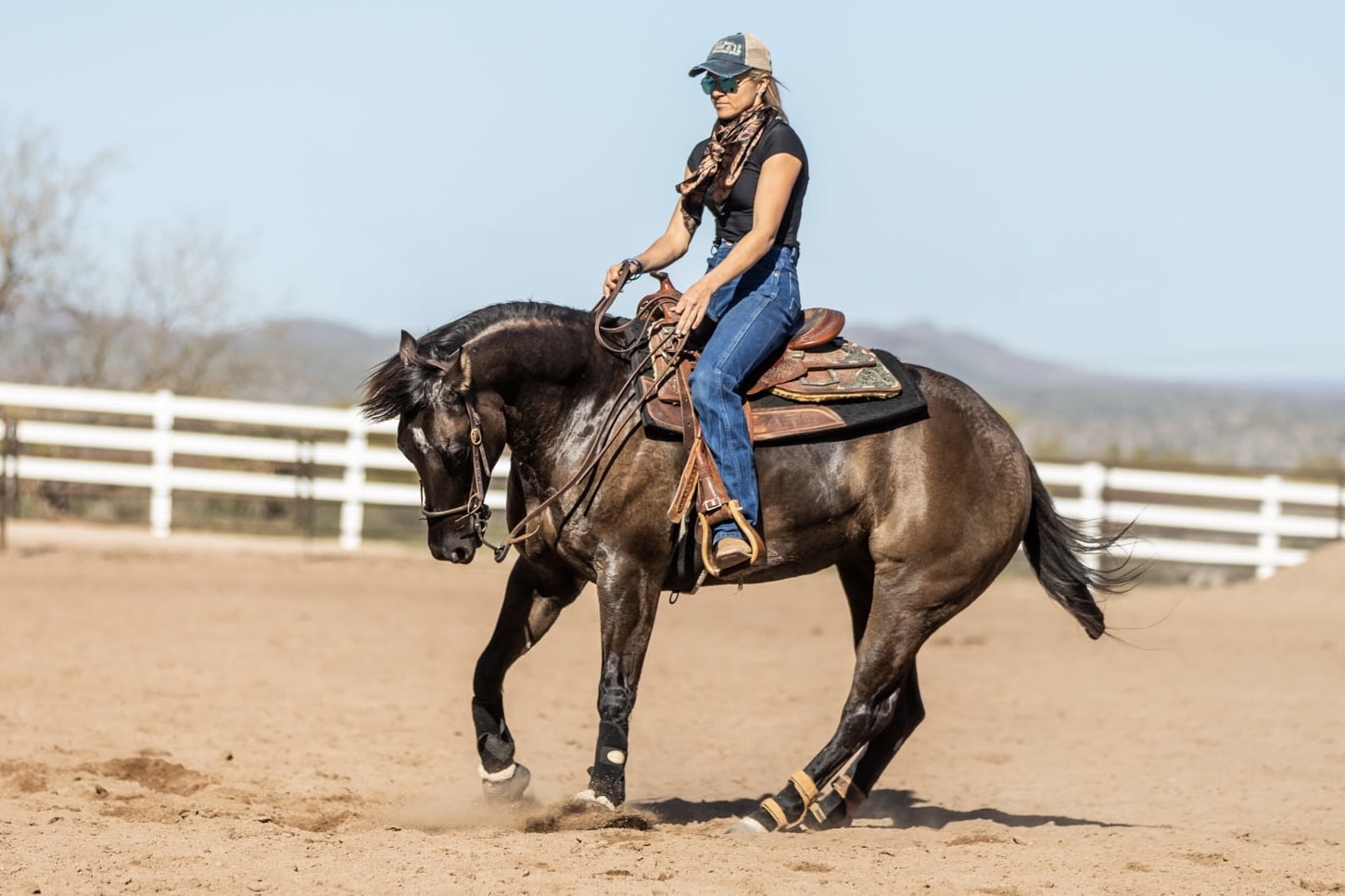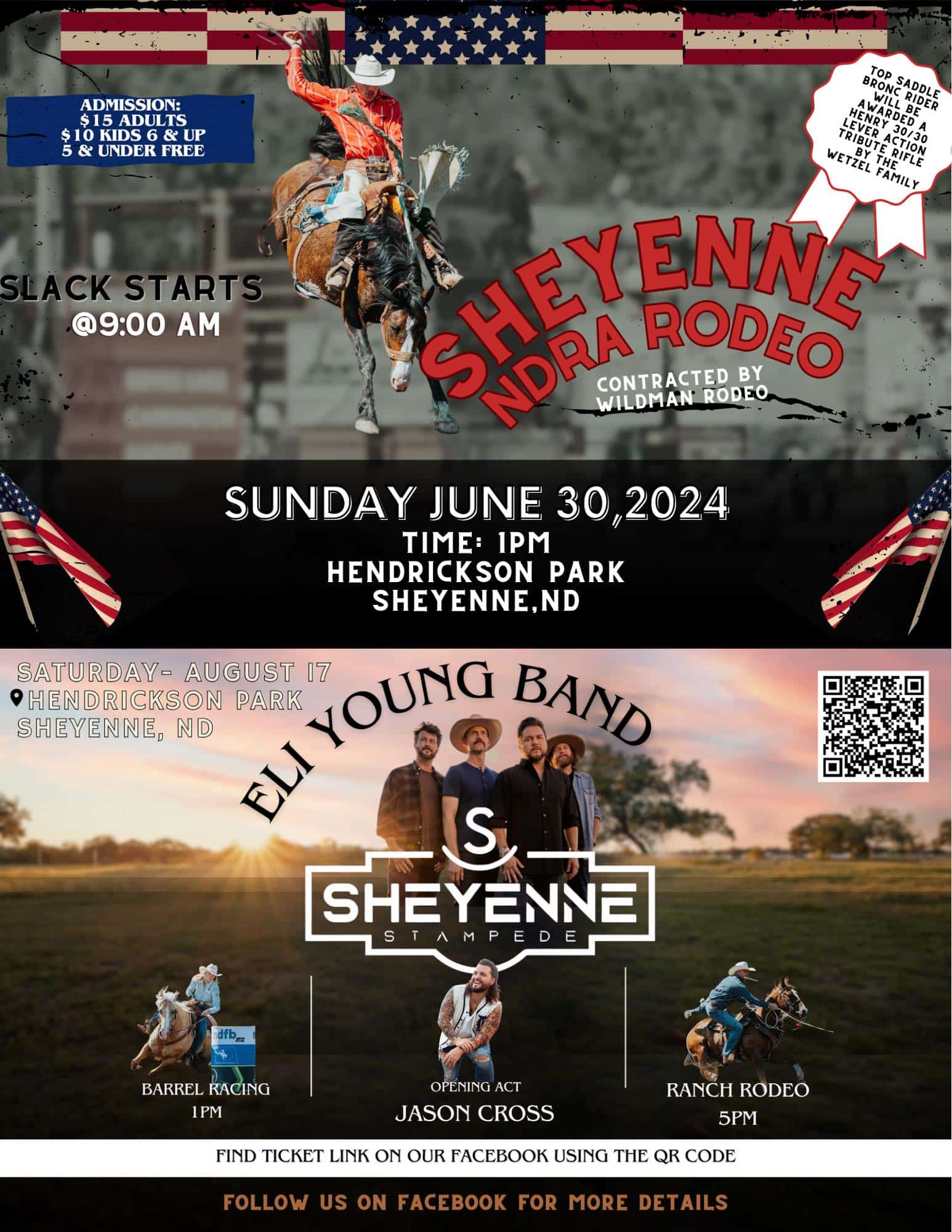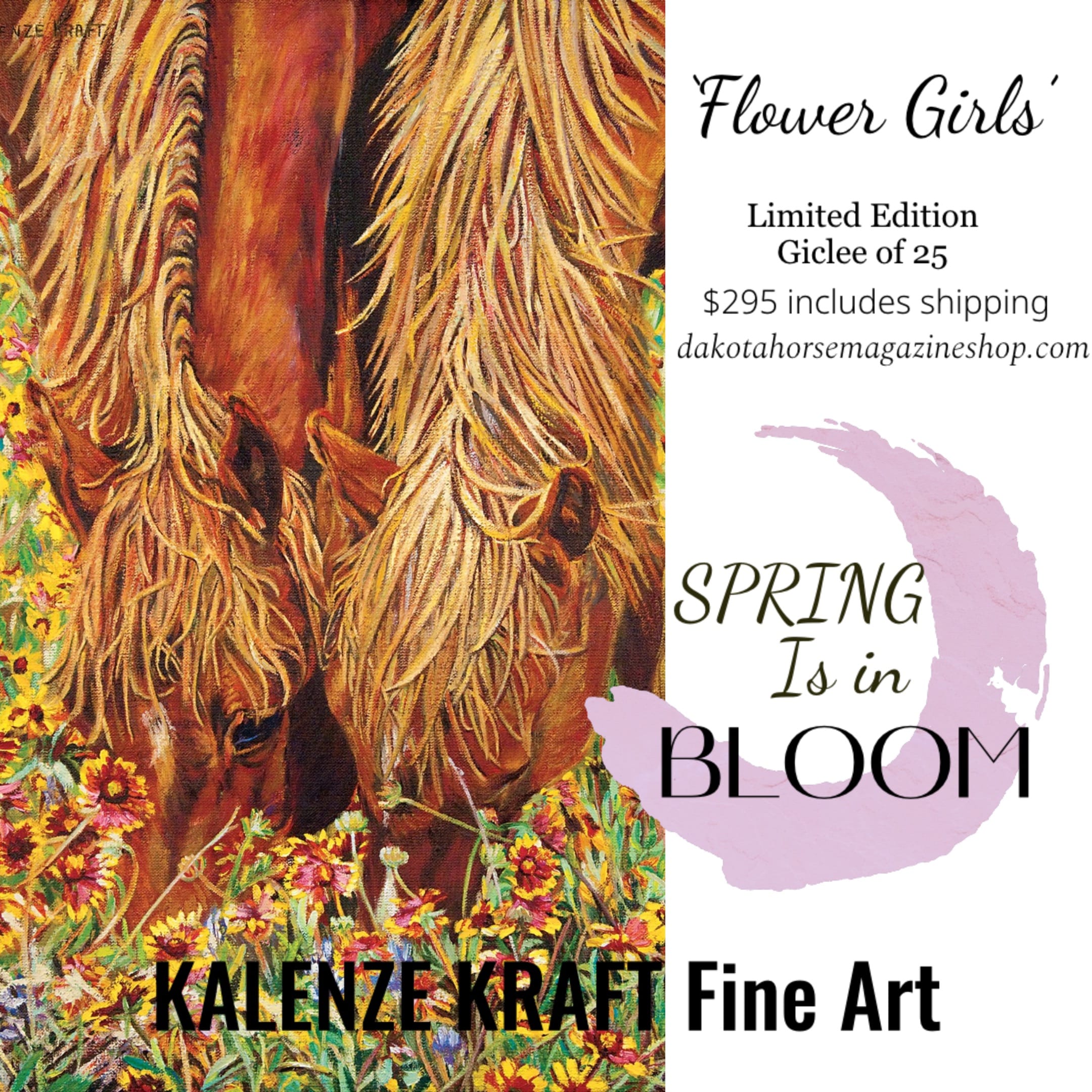[Photo: Sheila King Photography]
Expectations — Good or bad, or do we just need to learn how to manage them?
There are huge investments in time and money when a horse is professionally trained. This is why well-trained horses are so expensive. Someone has trained that horse with high, but realistic, expectations.
Expectations in the human world may include arriving on time, producing high-quality work, completing tasks on time, meeting deadlines, and displaying a positive attitude and/or behaving respectfully. In addition to strong interpersonal skills, other examples of performance are:
• Teamwork
• Effective Communication
• Adaptability
• Valuing Diversity
• Analysis and Problem-Solving
• Decision-Making and Results Orientation
Having high expectations of ourselves and our horses is crucial if we want to get to the next level, as long as we know how to manage those expectations. You have to know both your horse’s weaknesses and strengths, and the same is true about your own weaknesses and strengths. This is especially important in the performance horse world.
The horses that made it to the top get pushed pretty hard. They have to learn how to handle pressure and how to adapt to different environments and arenas. Working towards big events like the World’s Greatest Horseman, Run for a Million, or the National Finals Rodeo (NFR) means that the trainers have high expectations of their horses. They have to perform at a certain level mentally and physically to make it to the top. Some folks might think it’s cruel because winning or losing means nothing to the horse, but I think one of the most beautiful connections and relationships happen within competition.
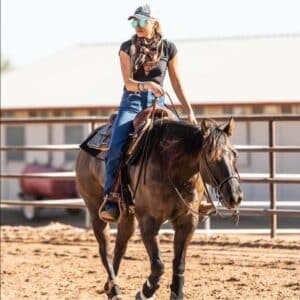
[Photo: Sheila King Photography]
You don’t form a relationship and bond with your horse by what you do, but by how you handle obstacles, questions, or challenges that come up while you are on the horsemanship journey together. There are so many challenges that come up and obstacles to overcome in preparing for a competition, which means if you manage your expectations and address each question in a fair manner you relationship with your horse will grow stronger.
Many of us don’t have high expectations of ourselves or our horses. Maybe it’s because we are making excuses for ourselves or our horses. Maybe we are afraid to increase our expectations because when we do we might have to step outside our comfort zone. We are afraid things might fall apart, like they often do. But I want to encourage you to set those goals and increase your expectations within reason, even if it falls apart for a while.
I’ve learned and ridden with a few people that have pushed me to the next level. These trainers believed in me and helped me to grow. Kerry Kuhn is one of those people, and he is like a brother to me. The kind of brother that you want to punch in the nose some days, but he always pushes me to dig deeper than horsemanship and for that I am always grateful to him. Before writing this article I texted him and asked, “Hey, what’s your views on expectations… horses and life?” He responded with, “Without obstacles… there’s no growth! Without distractions… there’s no focus. Without HIM… there’s no reason!! ‘Whatever you do, do it heartily, as to the Lord and not to men.’ (Colossians 3:23).”
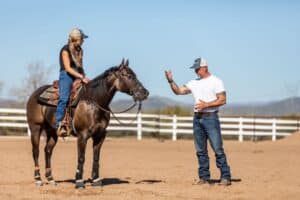
[Photo: Sheila King Photography]
I recently went to Arizona and had an amazing opportunity to stay with my friend John Hovde and ride with some amazing trainers: Ben Balow, Tom Campbell, Will Nuttall, and Josh Lyons, who has been on my bucket list for so many years. Every year I like to ride with other horsemen and trainers, so I can keep growing.
I learned from all of them but riding with Josh Lyons was one of those ‘smile from ear to ear, jump up and down, have to call at least 5 friends moments.’ This is why this article today is about expectations. Although I came out of that lesson with so much new knowledge obtained on advance body control, my favorite part was hearing Josh talk about expectations and then watching him challenge his horse, Apache. I always think that my expectations are high and I expect a lot of my horses, but then I ride with someone like Josh who is a 2 time world champion (NRHA) and futurity finalist who comes from a generation of well-known horsemen. Riding with people like Josh reminds me that I can ask for more. It’s okay to go to the next level, even if it gets messy.
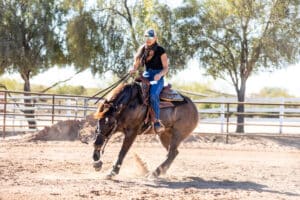
[Photo: Sheila King Photography]
Let’s define messy. Here’s a good example of how my dear friend, Marci Johnson, explains ‘messy’ in her own horsemanship as she increased her expectations. She says, “If you raise your expectations, your horse might be confused at first, because they’re used to the ‘old you’ riding them. Your horse might push against the bit, throw their head, swish their tail, or simply not do what you’re asking of them. But be patient, and don’t be afraid to ask a more advanced rider or trainer for help if you need it. The other messy part might be the internal battle you could face. Raising your expectations involves believing in yourself, your horse, and the relationship between you. Keep working on the inside of yourself, so you can be better for your horse.”
Set high expectations, but know that your worth is not tied to them. When you know your worth, you develop an ‘I can’ mentality. This is a mentality that doesn’t listen to the naysayers or the voices in your own head that say, “you can’t.” Instead it’s a mentality that embraces the truth found in God’s word that says, “you can.”
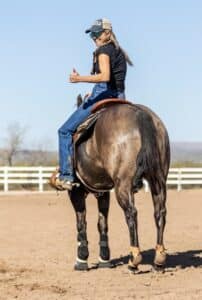
[Photo: Sheila King Photography]
“I will praise You, for I am fearfully and wonderfully made; Marvelous are Your works, and that my soul knows very well.” (Psalms 139:14).
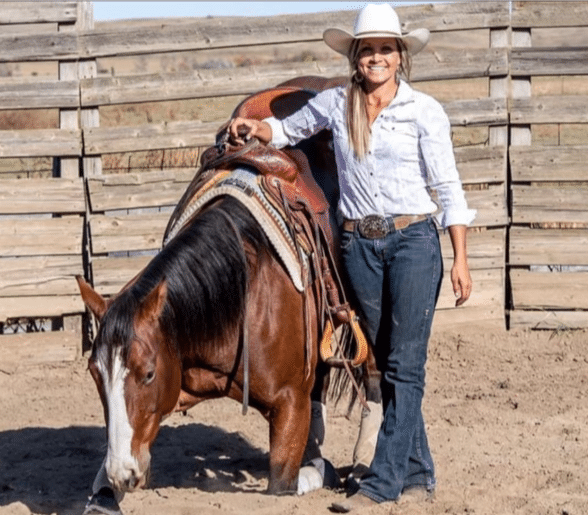
Elsabe Hausauer is a veteran in the horse training industry. She is the owner of MBR Performance Horses, LLC, clinician, and as she puts it, “forever student of the horse.” Horsewoman, rancher, wife, and mother by way of South Africa, she hangs her hat in Halliday, ND, encouraging the relationship between people and horses through teaching and advocating horsemanship skills to make each ride a better experience.


